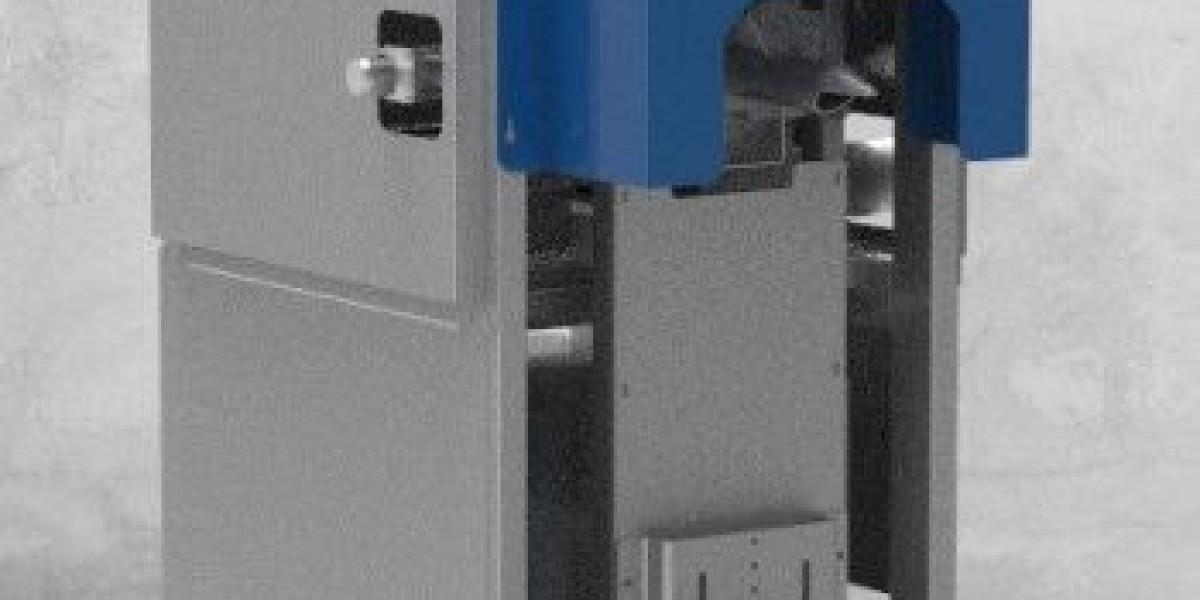In industries where large quantities of materials are handled daily, efficiency and accuracy are key. Whether you're dealing with grains, powders, pellets, or other bulk materials, managing packaging can be a time-consuming task. This is where a Bulk Bagger comes into play. But what exactly is it, and why should your business consider investing in one? Let’s break it down in a simple way.
Understanding a Bulk Bagger
A Bulk Bagger is an automated or semi-automated machine designed to fill and package large bags with bulk materials. These machines help businesses streamline the packaging process by ensuring precise weight measurements and reducing manual labor.
Imagine filling hundreds of heavy-duty bags manually. Not only would it be slow, but inconsistencies in weight could also lead to losses or inefficiencies. A Bulk Bagger eliminates these problems by automating the process and ensuring each bag contains the exact amount of material needed.
Industries That Benefit from Bulk Baggers
Bulk Baggers are widely used in different industries, including:
- Agriculture – For packaging grains, seeds, and fertilizers efficiently.
- Food Processing – Used for flour, sugar, and other bulk food products.
- Construction – Essential for bagging cement, sand, and other building materials.
- Chemical Industry – Helps in packaging powdered or granulated chemicals safely.
- Mining – Ideal for bagging minerals, coal, and other raw materials.
Regardless of the industry, if you deal with bulk materials, a Bulk Bagger can simplify operations and increase productivity.
How Does a Bulk Bagger Work?
The operation of a Bulk Bagger is straightforward:
- Material Loading – The bulk material is fed into the machine through a hopper or conveyor.
- Weighing System – The machine measures the exact amount of product to be bagged.
- Bag Filling – The material is dispensed into the bag, ensuring precise weight and minimal waste.
- Sealing and Handling – The filled bag is sealed and prepared for storage or transportation.
Depending on the type of Bulk Bagger, some machines also include dust control features, ensuring a clean work environment, especially for powdery substances.
Types of Bulk Baggers
There are different types of Bulk Baggers available, depending on the specific needs of a business. Some common ones include:
- Gravity-Fed Bulk Baggers – Ideal for free-flowing materials like grains and pellets.
- Auger-Fed Bulk Baggers – Designed for powders that don’t flow easily, such as flour or cement.
- Vacuum Bulk Baggers – Used for lightweight and aerated materials, ensuring proper compaction.
- Conveyor Belt Baggers – Used in industries that require a continuous flow of packaging.
Each type is designed to handle different materials efficiently, so choosing the right one depends on your specific business needs.
Benefits of Using a Bulk Bagger
1. Increases Efficiency
A Bulk Bagger can handle a high volume of packaging in a short time, reducing labor costs and speeding up production.
2. Ensures Accuracy
Manual weighing can lead to inconsistencies, but a Bulk Bagger ensures each bag is filled with the correct amount, reducing waste and improving product quality.
3. Reduces Labor Costs
Automating the bagging process reduces the need for manual labor, allowing employees to focus on other tasks.
4. Improves Workplace Safety
Heavy lifting and repetitive motions can lead to injuries. A Bulk Bagger minimizes manual handling, creating a safer work environment.
5. Minimizes Product Waste
Precision weighing and filling reduce spillage and product loss, making operations more cost-effective.
6. Enhances Packaging Consistency
Consistent packaging improves the overall look and professionalism of your product, which is crucial for businesses dealing with retail customers.
Choosing the Right Bulk Bagger for Your Business
When selecting a Bulk Bagger, consider the following factors:
- Material Type – Different baggers work best for different materials, so choose one that fits your product.
- Bag Size and Weight Capacity – Ensure the machine can handle the required bag sizes for your operations.
- Automation Level – Decide whether you need a fully automated, semi-automated, or manual bagger.
- Speed and Output – Consider how many bags per hour the machine can process.
- Workplace Space – Some machines require more space, so ensure your facility can accommodate it.
Consulting with an expert in industrial packaging can help you determine the best Bulk Bagger for your business.
Maintaining a Bulk Bagger for Long-Term Use
To keep your Bulk Bagger running efficiently, regular maintenance is essential. Here are some maintenance tips:
- Routine Cleaning – Prevent material build-up that can clog the machine.
- Lubrication – Keep moving parts lubricated to reduce wear and tear.
- Inspection – Regularly check for any loose parts or signs of damage.
- Calibration – Ensure the weighing system remains accurate to avoid under- or overfilling.
Proper maintenance can extend the lifespan of your machine and keep it performing at its best.
Is a Bulk Bagger a Good Investment?
If your business handles large volumes of bulk materials, investing in a Bulk Bagger is a smart decision. The initial cost may seem high, but the long-term benefits—such as improved efficiency, reduced labor costs, and minimal product waste—far outweigh the expense.
Many businesses see a return on investment quickly, as the machine increases productivity and ensures accuracy in packaging. Plus, a well-maintained Bulk Bagger can last for years, making it a reliable asset for any industry dealing with bulk materials.
Final Thoughts
A Bulk Bagger is more than just a machine—it’s a game-changer for businesses that deal with bulk material packaging. From improving efficiency and accuracy to reducing costs and ensuring workplace safety, the benefits are undeniable.
If your business struggles with slow, inconsistent, or labor-intensive packaging, it’s time to consider upgrading to a Bulk Bagger. It could be the solution you need to streamline operations and boost productivity.
Would you invest in a Bulk Bagger for your business? Let us know your thoughts!








